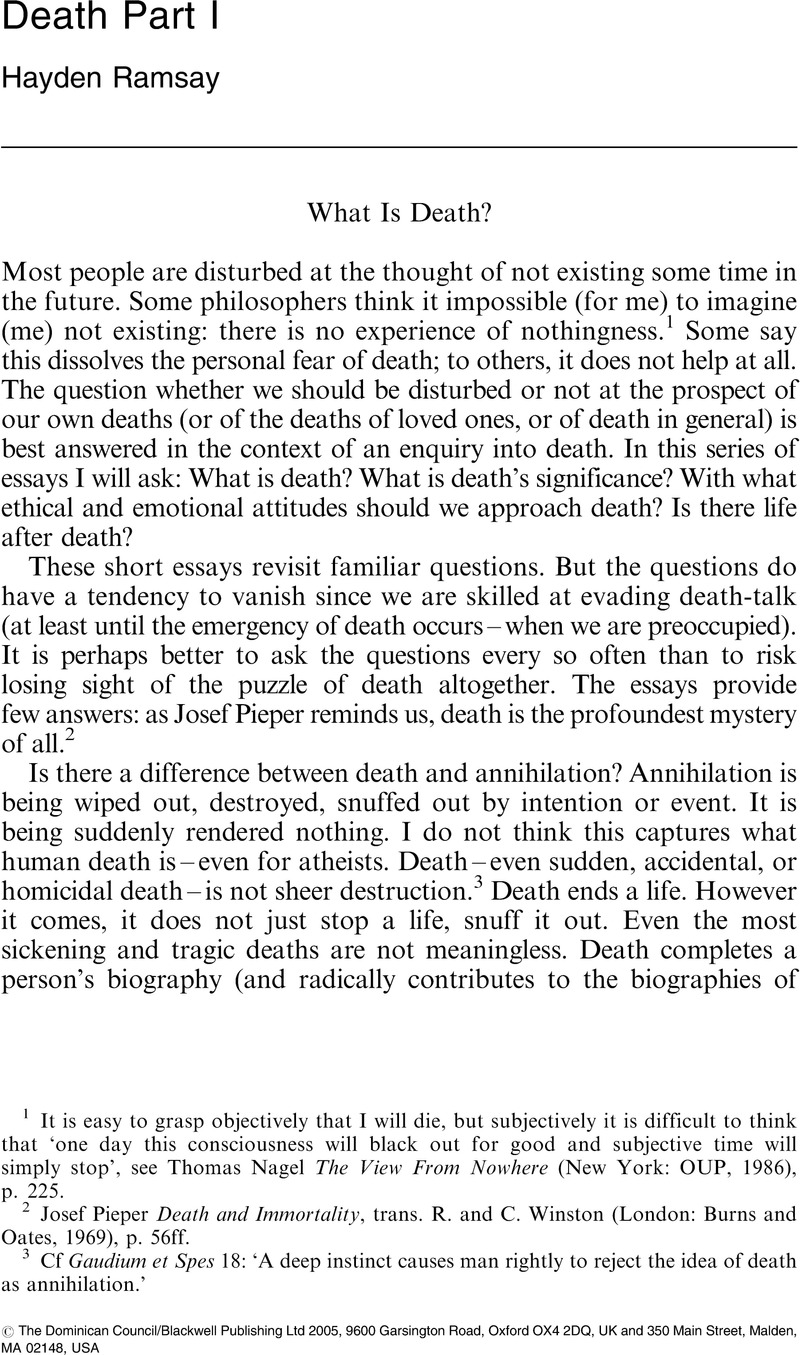No CrossRef data available.
Article contents
Death Part I
Published online by Cambridge University Press: 01 January 2024
Abstract

- Type
- Original Articles
- Information
- Copyright
- Copyright © The Dominican Council/Blackwell Publishing Ltd 2005
References
1 It is easy to grasp objectively that I will die, but subjectively it is difficult to think that ‘one day this consciousness will black out for good and subjective time will simply stop’, see Nagel, Thomas The View From Nowhere(New York: OUP, 1986), p. 225Google Scholar.
2 Pieper, Josef Death and Immortality, trans. R. and Winston, C. (London: Burns and Oates, 1969), p. 56ffGoogle Scholar.
3 Cf Gaudium et Spes 18: ‘A deep instinct causes man rightly to reject the idea of death as annihilation.’
4 See Joseph Ratzinger on Gaudium et Spes 18: ‘Death is not an extrinsic moment at the end of a life unaffected by it, nor…a biological process [with] nothing to do with what is really human, but is a constantly determining aspect of human life’, Commentary on the Documents of Vatican II Vol. 5, H. Vorgrimler, ed. (New York: Herder and Herder, 1969), p. 140.
5 See McCabe, Herbert God Matters(London: Geoffrey Chapman, 1987), Chs 1–4Google Scholar.
6 St Augustine The Catholic and Manichaean Ways of Life, trans. Gallagher, Donald and Gallagher, Idella (Washington DC: Catholic University of American Press, 1966)Google Scholar, Book 2.
7 Yourgrau, Palle ‘The Dead’The Journal of Philosophy, 1987, pp. 84–101CrossRefGoogle Scholar.
8 See also, Parsons, Terence Nonexistent Objects(New Haven: Yale University Press, 1980)Google Scholar.
9 Yourgrau, p. 91.
10 See Thomas Nagel's ground‐breaking discussion in Mortal Questions(Cambridge: Cambridge University Press, 1983)Google Scholar, Ch. 1.
11 St Thomas Aquinas Commentary on 1 Corinthians, 15; Summa Theologiae 1, 76, 1; 77, 8. See Pasnau, Robert Thomas Aquinas on Human Nature(Cambridge: CUP, 2002)Google Scholar, Ch. 12 for recent commentary.
12 Work on these essays was generously supported by Mrs Joan Santamaria. Peter Martin OP provided excellent research assistance.




